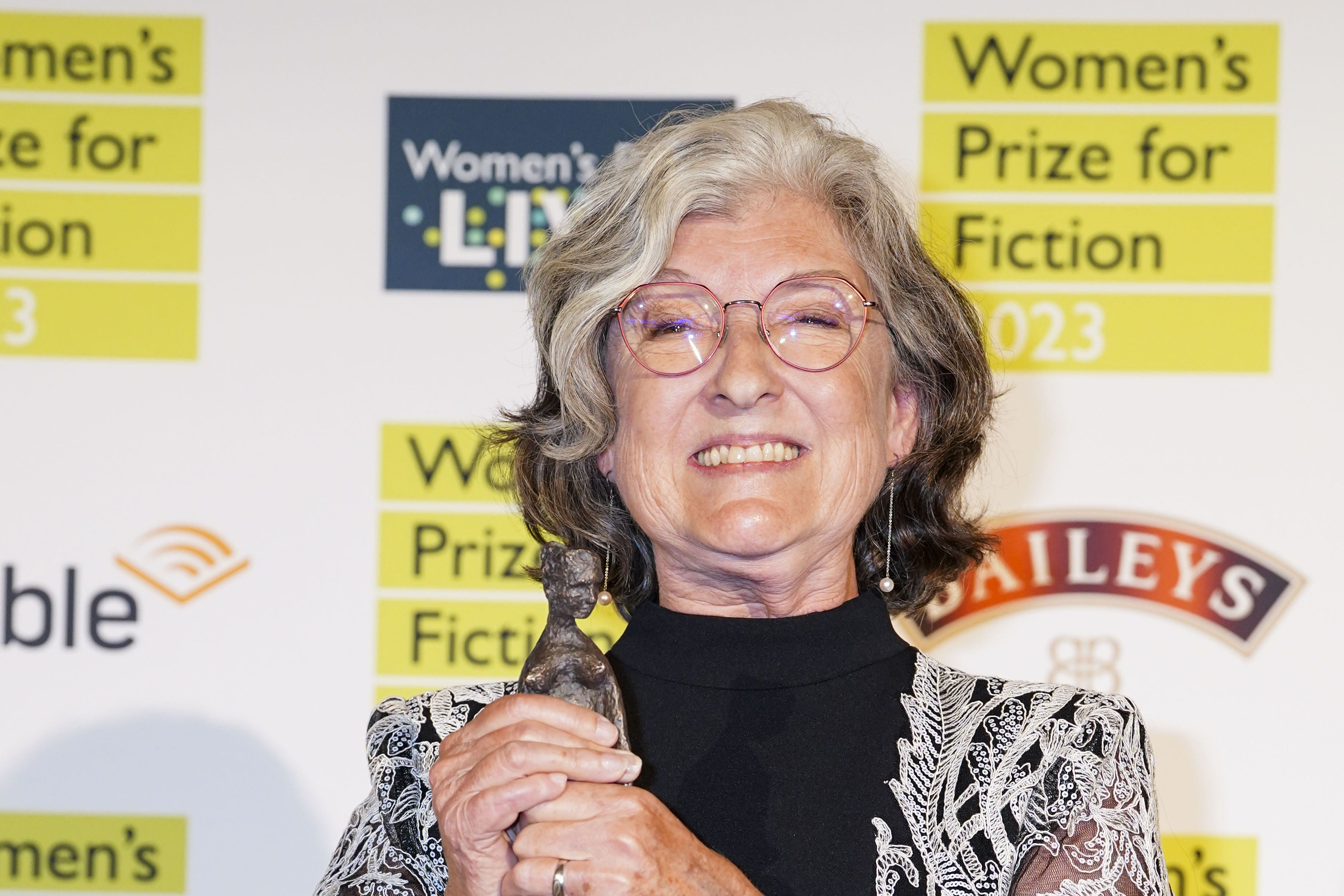US author on second Women’s Prize for Fiction win: Lightning has struck twice
Barbara Kingsolver said she is happy that her readers will follow her ‘wherever I go in a literary way’ following her historic win.

Your support helps us to tell the story
From reproductive rights to climate change to Big Tech, The Independent is on the ground when the story is developing. Whether it's investigating the financials of Elon Musk's pro-Trump PAC or producing our latest documentary, 'The A Word', which shines a light on the American women fighting for reproductive rights, we know how important it is to parse out the facts from the messaging.
At such a critical moment in US history, we need reporters on the ground. Your donation allows us to keep sending journalists to speak to both sides of the story.
The Independent is trusted by Americans across the entire political spectrum. And unlike many other quality news outlets, we choose not to lock Americans out of our reporting and analysis with paywalls. We believe quality journalism should be available to everyone, paid for by those who can afford it.
Your support makes all the difference.Barbara Kingsolver says she is happy that her readers will follow her “wherever I go in a literary way” after winning the Women’s Prize for Fiction for a second time, becoming the first author to do so.
The US novelist, 68, said “lightning had struck twice” after being announced as the winner of the prestigious prize and the achievement was a “validation” of her Appalachian roots.
Kingsolver scooped the award for her tenth novel Demon Copperhead after previously winning in 2010 with The Lacuna.
Set in the Appalachian mountains in Virginia, her latest work is a modern retelling of Charles Dickens’ classic David Copperfield.
I just didn't expect my name to be announced, so I’m a little shaky - it's like lightning struck twice
It tells the story of the “struggles and triumphs” of a young boy born into poverty as he navigates foster care, labour exploitation, addiction, love and loss while “grappling with his invisibility in a culture that neglects rural communities”.
The novel also won the 2023 Pulitzer Prize For Fiction last month alongside Hernan Diaz’s Trust.
Speaking to the PA news agency following the announcement on Wednesday, Kingsolver said it was “a total shock”.
“I loved meeting and befriending all the other women on the shortlist, they’re all such great writers. I was rooting for every one of them,” she said.
“I just didn’t expect my name to be announced, so I’m a little shaky – it’s like lightning struck twice.”
The author said that it “seemed a little artificial” to decide on which of her books were the “the best” and that all of her work came “from a place of passion”.
“I’m really, really happy that readers will follow me wherever I go, in a literary way, and whatever dark and winding paths I take to go there – that’s my prize,” she said.
“But for this novel in particular, Demon Copperhead, because it’s an Appalachian novel – it’s about my place, and my people who are never seen, who are not respected.
“We don’t ever see ourselves on television or in the movies, so this makes me happy because it’s such a validation of my place and my people. I’m really happy for the people back home.”
Asked what she hoped the novel would achieve, she replied: “What I think every novelist hopes a novel will achieve.
“That you can ask the reader to put their own lives aside and enter the life of another person for a little while.
“That right there is a political act – it breaks down the walls of otherness between people and that’s how that’s how empathy is born.
“That’s how our hearts grow bigger. That’s how we change the world.”
Kingsolver has also received a number of awards throughout her career, including the National Humanities Medal by the former US president Bill Clinton.
With her win on Wednesday, she takes home a £30,000 prize endowed by an anonymous donor and the Bessie, a limited edition bronze figure created by Grizel Niven.
She told PA that she intended to write “as many (more novels) as I possibly can” and was already working on her next.
“As a writer, I think the most important book is always the next one, so I’m excited to go home and write it,” she said.
Judges described Demon Copperhead as “a towering, deeply powerful and significant book”.
“In a year of outstanding fiction by women, we made a unanimous decision on Demon Copperhead as our winner,” said journalist Louise Minchin, chairwoman of the judging panel.
“Brilliant and visceral, it is storytelling by an author at the top of her game. We were all deeply moved by Demon, his gentle optimism, resilience and determination despite everything being set against him.”
The broadcaster was joined on the judging panel by novelist Rachel Joyce, journalist and writer Bella Mackie, novelist and short story writer Irenosen Okojie, and Labour MP Tulip Siddiq.
Now in its 28th year, the prestigious prize was open to original fiction written in English by women from anywhere in the world.
Also shortlisted was Fire Rush by Jacqueline Crooks; Trespasses by Louise Kennedy; Black Butterflies by Priscilla Morris; Pod by Laline Paull and The Marriage Portrait by Maggie O’Farrell.
Half of the 2023 shortlist was made up of debut novels from older women, the youngest among them aged 49, while Kingsolver was the eldest author on the list.
Last year’s winner was American-Canadian author Ruth Ozeki for her fourth novel The Book Of Form And Emptiness.